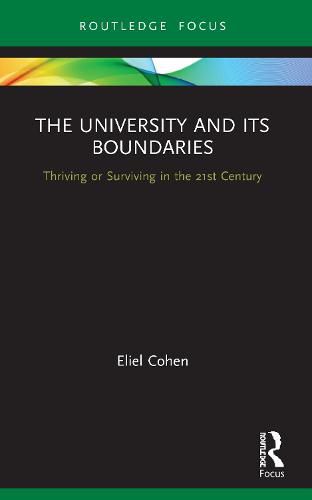Readings Newsletter
Become a Readings Member to make your shopping experience even easier.
Sign in or sign up for free!
You’re not far away from qualifying for FREE standard shipping within Australia
You’ve qualified for FREE standard shipping within Australia
The cart is loading…






Grounded in key sociological theory on the concepts of boundaries, power and control, this text addresses the question of whether the university is thriving or merely surviving.
Using a sociological lens to consider how institutions must engage in boundary transactions in order to maintain their unique position and identity, this book explores how these transactions also have the potential to undermine academic boundaries. Including a detailed analysis of the activities, organisation and outputs of academic research in the context of science, technology, engineering, mathematics and medicine (STEMM) departments of UK universities, the arguments presented have implications for universities and their stakeholders not only in the United Kingdom, but wherever universities face challenges of purpose and identity, particularly where these are shaped by neoliberal modes of governance and management.
Insights into how universities must balance the ideas of themselves as teaching institutions, research institutions and their broader societal importance and impact make this important reading for higher education scholars and postgraduate students, sociological theorists and all those interested in the future of the university.
$9.00 standard shipping within Australia
FREE standard shipping within Australia for orders over $100.00
Express & International shipping calculated at checkout
Grounded in key sociological theory on the concepts of boundaries, power and control, this text addresses the question of whether the university is thriving or merely surviving.
Using a sociological lens to consider how institutions must engage in boundary transactions in order to maintain their unique position and identity, this book explores how these transactions also have the potential to undermine academic boundaries. Including a detailed analysis of the activities, organisation and outputs of academic research in the context of science, technology, engineering, mathematics and medicine (STEMM) departments of UK universities, the arguments presented have implications for universities and their stakeholders not only in the United Kingdom, but wherever universities face challenges of purpose and identity, particularly where these are shaped by neoliberal modes of governance and management.
Insights into how universities must balance the ideas of themselves as teaching institutions, research institutions and their broader societal importance and impact make this important reading for higher education scholars and postgraduate students, sociological theorists and all those interested in the future of the university.